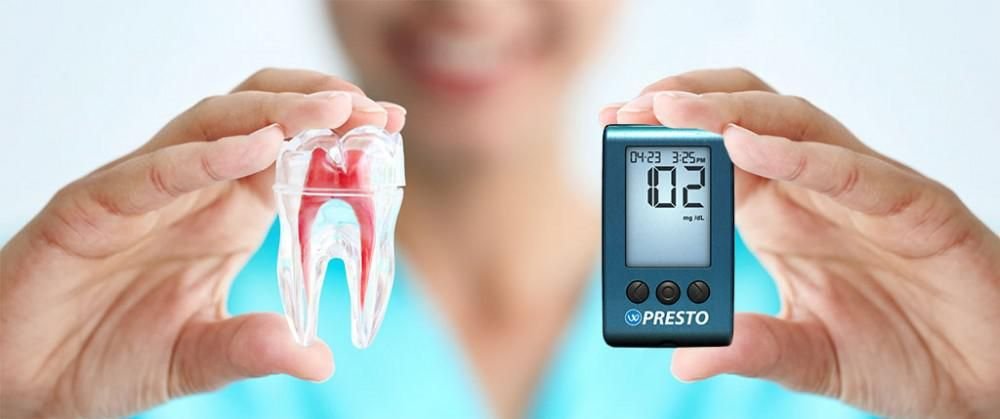The Surprising Connection Between Diabetes and Oral Health
Did you know that your oral health and diabetes are more closely linked than you might think? In fact, studies have shown that people with diabetes are at a higher risk of developing gum disease and other oral health problems. But why is this the case? And what can you do to protect yourself from these potentially serious conditions? In this blog post, we’ll explore the surprising connection between diabetes and oral health – and share some tips for maintaining a healthy smile, no matter what your blood sugar levels might be. So buckle up – it’s time to dive into the fascinating world of dental science!
Introduction to Diabetes and Oral Health
Diabetes is a chronic condition that affects millions of Americans. It can cause a variety of health problems, including heart disease, stroke, kidney disease, and blindness. Diabetes can also lead to gum disease and tooth loss.
The link between diabetes and oral health is not fully understood, but it is believed that high blood sugar levels may damage the gums and teeth. Diabetics are also more likely to develop infections in their mouths.
Good oral hygiene is essential for diabetics. Brushing and flossing regularly can help prevent gum disease and tooth decay. Diabetics should also see their dentist regularly for cleanings and checkups.
If you have diabetes, it is important to take care of your teeth and gums. Good oral hygiene can help prevent serious health problems down the road.
The Connections Between Diabetes and Oral Health
There are a few different ways that diabetes can impact your oral health. People with diabetes are more likely to develop gum disease, which can lead to tooth loss. They’re also at an increased risk for fungal infections like candidiasis (thrush), and dry mouth.
Diabetes can also make it more difficult to control other oral health problems, like cavities. That’s because people with diabetes are more likely to have high levels of sugar in their saliva, which feeds the bacteria that cause cavities.
If you have diabetes, it’s important to take extra care of your teeth and gums. Be sure to brush and floss regularly, and see your dentist for regular checkups and cleanings.
Symptoms of Poor Oral Health Due to Diabetes
Poor oral health is one of the many complications that can arise from diabetes. Diabetes can cause problems with the gums, teeth, and mouth due to high blood sugar levels.
Gingivitis, or inflammation of the gums, is one of the first signs of poor oral health due to diabetes. Gingivitis can lead to periodontitis, or gum disease, which can eventually lead to tooth loss. Other symptoms of poor oral health due to diabetes include dry mouth, thrush (a yeast infection), and burning mouth syndrome.
If you have diabetes, it is important to brush and floss your teeth regularly and see your dentist for regular checkups. Treatment for gum disease may include scaling and root planing (deep cleaning) as well as antibiotics. Good glycemic control is also essential for preventing and treating oral health problems related to diabetes.
Practical Tips for Improved Oral Health with Diabetes
Good oral health is especially important for people with diabetes. Poor oral health can lead to problems with blood sugar control, and vice versa. Here are some practical tips for improved oral health:
- Brush your teeth at least twice a day with a soft-bristled brush.
- Use toothpaste that contains fluoride.
- Floss your teeth every day.
- Visit your dentist regularly for professional cleanings and checkups.
- Quit smoking, if you smoke. Smoking increases the risk of gum disease and other oral health problems.
Benefits of Proper Oral Care with Diabetes
There are a few key benefits of proper oral care when you have diabetes. First, it can help prevent gum disease. Gum disease is a common complication of diabetes, and it can lead to other serious problems like tooth loss. Proper oral care can help keep your gums healthy and prevent gum disease from developing.
Second, proper oral care can help control your blood sugar levels. When your blood sugar levels are well-controlled, you’re less likely to develop complications like diabetic ketoacidosis (DKA). DKA is a serious complication that can occur when your blood sugar levels get too high. Proper oral care can help keep your blood sugar levels in check and prevent DKA from happening.
Third, proper oral care can help you avoid infection. Infections are more common in people with diabetes because their immune systems are weaker. If an infection does occur, it can quickly turn into a serious problem if not treated promptly. Proper oral care can help reduce your risk of developing an infection by keeping your mouth clean and healthy.
Fourth, proper oral care can help you manage other diabetes-related complications. For example, if you have diabetic neuropathy (nerve damage), good oral hygiene can help prevent infections that could lead to amputation. And if you have periodontal disease (gum disease), proper oral care can help improve blood sugar control and reduce the risk of heart disease.
Overall, proper oral care is essential for people with diabetes.
Alternatives to Traditional Treatments for Oral Health Problems Related to Diabetes
There are a number of alternative treatments for oral health problems related to diabetes. These include:
- Herbal remedies: There are a number of herbs that have been shown to be effective in treating oral health problems related to diabetes. These include echinacea, goldenseal, ginger, ginseng, and licorice root.
- Homeopathic remedies: Homeopathic remedies are also effective in treating oral health problems related to diabetes. Some of the most commonly used homeopathic remedies for this purpose include Arnica montana, Calcarea carbonica, and Natrum muriaticum.
- acupuncture: Acupuncture has been shown to be effective in treating a variety of oral health problems related to diabetes.
- Chiropractic care: Chiropractic care is another alternative treatment that has been shown to be effective in treating oral health problems related to diabetes.
Conclusion
To conclude, it is important to note that diabetes and oral health are closely linked. Those living with diabetes must take extra care of their mouths and teeth in order to prevent serious problems from developing. By brushing twice a day, flossing regularly, visiting the dentist for regular checkups and cleanings, and controlling your blood sugar levels as much as possible, you can help ensure good oral hygiene even if you have diabetes. With the right preventive measures in place, you can keep your mouth healthy while managing your diabetes effectively.





